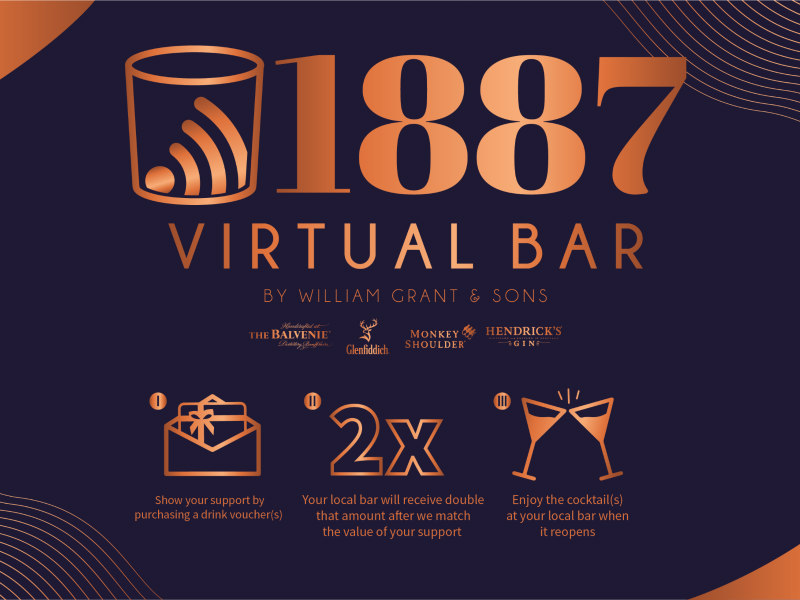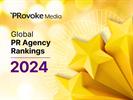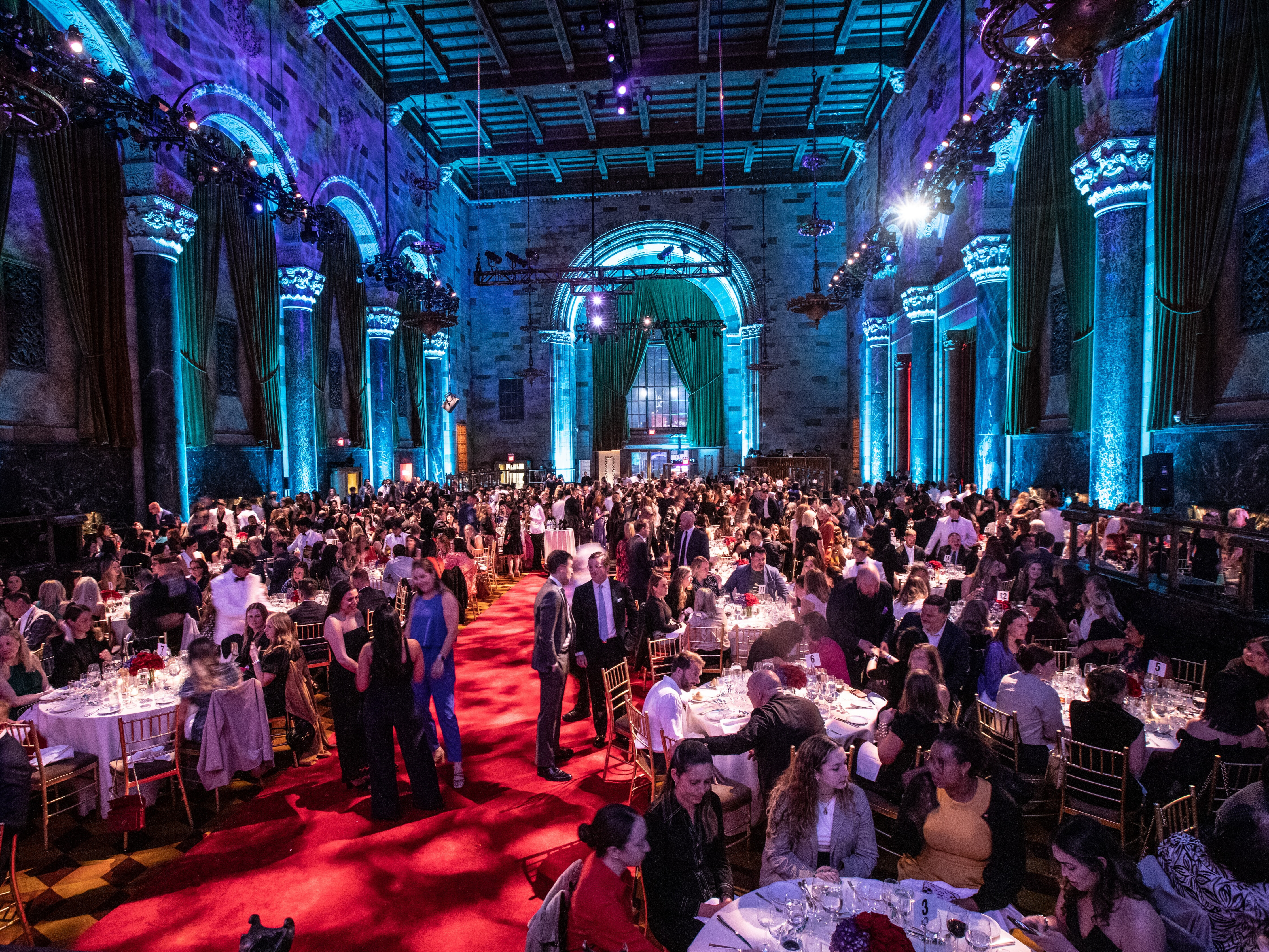Arun Sudhaman 17 Apr 2020 // 3:24PM GMT

Somewhere out there, the bright side beckons. If virtual agencies are one of the beneficiaries of the Covid-19 era, then consider another. That the public relations discipline may finally find itself in a position to steer brand creativity rather than being consigned to the supporting role against which it has chafed for so long.
Much has been made of the need for companies to articulate their support for society at this time. And there is no question that PR people are well placed to navigate that specific challenge. But as brands step back from overt selling, their marketing work has come to be heavily focused on "making people feel comfortable with the new normal", as Social Studies CEO Brandon Pearlman puts it.
That kind of marketing activity — led more by purpose than profit — plays well to the PR industry's strengths. Accordingly, PRovoke Media is launching a regular series that showcases the best examples of this type of work, reflecting the brand pivot that is effectively turning consumer marketing into community relations.
Every year, one common factor among PRovoke Media's Agencies of the Year is the kind of creativity that is rapid, earned, as in tune with the news media as the cultural zeitgeist and — crucially — drives action. It is this which fuels, for example, Richard Edelman's fierce belief that "earned creative" will transform the industry, helping it unlock marketing budgets and lead brand-building campaigns.
Of course, those big marketing budgets are not exactly on offer right now. And these are probably not the terms on which PR firms envisaged elevating their role. But as demand grows for creative solutions that sensitively address all stakeholders, that are low-cost, can be delivered quickly and communicate through earned conversations rather than paid messaging, the opportunity for the PR industry should be clear.
"Everyone across the marketing and communications industry is stepping up to develop creative pivots for brands," says BCW New York brand practice leader Karen Kearns, who notes that many of the ideas her firm has presented to clients have been created in a matter of hours and executed in a matter of days. "That said, this is really PR’s moment to shine. Our unique ability to read pop culture, assess the zeitgeist and ideate on the fly make us so well-suited for this kind of immediate creativity."
"Without question the current scenario demands pace – and the kind of pace that PR is probably better-placed to deliver," adds Hope&Glory co-founder James Gordon-Macintosh. "The situation and the briefs change on an almost hourly basis at the moment, it feels. PR does have the ability to read and capture the mood and respond far faster."
At the same time, there is also the suggestion that big marketing campaigns may not just be unwieldy but run the risk of being too tone deaf for the situation that we find ourselves in. "Many brands understand that they need to do something — but not all of them understand it's got to be done with genuine sincerity, compassion and humanity, otherwise, consumers will see straight through it and the outcome will turn out to be more dangerous than beneficial," says Rob Lowe, co-founder of Australia's Poem, who points out that this kind of reactive messaging "is typically more of a public relations area of expertise."
"The world has had to adapt in such a short space of time and as a result some parts of the traditional marketing mix haven't been able to keep up, as they're either not set up for speed or are redundant during a time when everyone is inside, at home," adds Frank director Melissa Robinson.
"Consumers want the latest news now and to be digitally entertained 24/7. For that you need rapid, reactive thinking to ensure communication is relevant, relatable and respectful, and the bravery to pivot without hesitation: qualities that come naturally to PRs – second nature – because that way of thinking was part of our everyday before Covid-19 took hold."
Business vs brand
Not everyone is convinced that this boils down to the simplistic trope of PR prospering at advertising's expense. A more nuanced view suggests that what brands are doing is more important than how they communicate, reflecting the convergence of brand marketing and corporate reputation that has been underway for several years.
"First and foremost, the pandemic presents an opportunity for companies to take action that matters — to help solve real business and societal challenges," notes Zeno CEO Barby Siegel. "We are well positioned to help clients best articulate and manifest their purpose as an extension of their values, and then communicate as appropriate to both internal and external audiences. And yes, PR is more strongly suited to be that guide for clients during this time when timing and authenticity are paramount."
Neither does that always mean that advertising is the wrong solution if the message, and the action behind it, are the right ones. "People want to hear from brands, and advertising can be an effective medium in many of our markets — but tone deafness will be because brands are focused on selling, not offering solutions," says Edelman Asia-Pacific COO Bob Grove.
Which means that companies must be far more focused on demonstrating action, adds Grove, noting the results of Edelman's recent Brands and Covid-19 report. "No one knows what a post-Covid-19 world might look like, but the expectation of brands to be very clear about what they are doing to support jobs, communities and societies in rebounding successfully, will be with us for quite some time."
Indeed, Gordon-Macintosh sees the trend moving towards business concerns first right now, ahead of brand activity. "Early days, I think the brand marketers did a great job around the simple 'stay home' message," he points out. "Since then, the mood has shifted. The work that has truly cut through has been less brand and more business."
Gordon-Macintosh points to companies that are using their resources to help people get through the crisis, citing such UK examples as "the Royal Mint or Burberry announcing that they had turned to making PPE; the supermarkets taking steps to feed the nation; Airbnb announcing rooms for NHS staff (as well as health workers in other territories); or the mobile providers making and announcing access changes to make websites offering support free."
Or consider, for example, the companies that are rallying essential supplies rather than trying to shift product. Cafe chain Panera is directing most of its 2,000 locations to sell milk, yogurt, tomatoes and avocados, while major players such as AB Inbev, Mars and Pret A Manger are all using their networks to support critical supplies and expertise.
Even something as simple as gym chains switching to home workout videos, or liquor brands launching virtual bars, provide examples of how brands are thinking up solutions that prioritise community engagement and support over bottom-line benefit.
"More than ever right now, brands have that opportunity to win hearts and minds, by earning a place in people's lives," says Lowe. "To achieve this, they first need to realise and understand the needs, fears and psychology of the people they're looking to win over and instead of just broadcasting sales messages through advertising channels, they need to do things that are real and meaningful.That kind of earned creative thinking, flexibility and more human understanding, is a huge opportunity for both brands and the PR agencies that support them."
Frank editorial director Ryan Sketchley points to Captain Tom Moore's NHS fundraising campaign, which has already raised £18m, as the perfect example of how engagement strategies need to shift right now. "His is a rich, authentic story — a WW2 veteran, has seen it all before, knows what it takes to galvanise a national effort."
"[It's a] mix of traditional British stiff upper lip blended with the millennial trend of fundraising challenges documented on smartphones," says Sketchley. "Story entirely told through editorial and social — raises £12m in less than a week. I'd argue no OOH/paid for campaign in these times could match that. You could also say the same for the Run 5k for The NHS, [which] taps into people's currently unserved desire for community and connectivity."
Couple that, adds Sketchley, with the impact that "authentic commentary from experts" is having. "We are staying at home, not seeing family, changing our business operations, home-schooling our children. Compare that with decades of paid-for government campaigns that tried to get us eating healthily, drink responsibly etc, that have taken generations to slowly shift behaviour."
Equally, as economic concerns ring ever louder, companies can be forgiven for balancing altruistic motivations with more commercial ones. "Clients are looking for ways to keep their stakeholders informed and keep their pipeline as warm as it can be — especially where they are pivoting to more e-commerce sales," says Archetype Asia-Pacific regional director Lee Nugent.
"So for firms like ours that already have the 360 view of the organisation’s challenges, as PR-centric agencies often do, this means we are able to move quickly, sensitively and — frankly — affordably, to deliver content-driven campaigns that are both meaningful and engaging."
PR vs advertising
Understandably, given the number of false dawns this industry has spied, many PR leaders are cautious about proclaiming this a new one, not least because even traditional communications strategies are having to be rethought. "Any creative must stress a solution to the current situation, not just try to sell to people," warns Grove. "While this authentic creative requires an earned lens, no agency in any industry should assume that they have a right to this work.
"Valuable agency partners will not only need to demonstrate that they can craft a smart narrative, but that there is deep creative, superior knowledge of the platform chosen and that all communications are sensitively and empathetically spoken. So yes, PR firms should have an inside track, but there is now much more to consider than following traditional tactics."
A common observation is that PR firms hewing to a media relations mindset could be accused of being just as channel-centric as an ad agency that wants to put everything on a billboard. "The best kind of creativity is the kind that is ambivalent to the eventual delivery mechanism and focused entirely on the challenge at hand," points out Freuds CEO Arlo Brady. "It’s true that you find that particular blend more often in PR than in advertising, but that does not mean that earned media is always the most appropriate solution — we have to be open minded and outcome orientated."
Even so, there is enough to suggest that the stars may finally be aligning, even if only on a temporary basis, to reward the kind of creativity that addresses all stakeholders, and carries with it distinct benefits in terms of speed, pricing and realtime insight.
"This crisis has made creativity more necessary than ever, but creativity in times like these needs to go hand in hand with thoughtful positioning, perception management and issues mitigation, and executed with speed," argues AKA Asia Julia Wei. "Arguably, this is second-nature to the way PR agencies work."
The risk — as ever — is that the public relations discipline benefits but the industry doesn't, mimicking a trend that regularly sees ad agencies sweep the board for their earned media efforts at Cannes. Typically, though, that has underpinned big consumer campaigns; the current focus on multiple stakeholders represents a break from this monotony that enterprising PR firms would do well to capitalise on.
Nugent, for one, is already seeing the benefits of this mentality, pointing out that clients are building content repositories and/or shifting their focus from customers to staff or the local community.
"The fact that we can provide fast, creative solutions to this (from remote video campaign content in place of customer case studies, to market launches over Zoom, or rapid IGTV executions that put the client’s business at the heart of the daily challenges we are all facing) means that we are increasingly picking up – albeit smaller – briefs that may in the past have fallen to the ad agency," he says.
"One possible advantage for the PR industry in the long term, especially those with a focus on earned creative content, is that brands are urgently looking for more cost-efficient, timely and low-fi production solutions (in order to react to the situation), which many of the traditional ad agencies are unable to make the right margins from, at least not sustainably," adds Lowe. "This could show brands what's possible and still effective using smaller budgets and therefore play to the offering of those PR agencies in the future, that play in between the traditional silos of advertising and PR."
Others are even more bullish. "Our creative process begins and ends with culture – listening to it, unpacking it and then adding to it with campaigns and creative ideas that are worth sharing," says M Booth chief creative officer Adrianna Bevilaqua. "Advertising agencies may try but most just don’t have a strong culture muscle – and now is the time to flex that muscle. Those that are trying to build it are just too late."
Additional reporting by Diana Marszalek and Maja Pawinska Sims.



































.jpg)






























